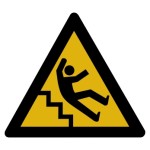Posted in Michael J. Fontaine, Personal Injury, Series: "Why Do I Need a Personal Injury Lawyer?"
 When a person is injured (physically and/or emotionally), their legal cause of action is generally classified as a “tort.” All personal injury (tort) law suits involve the same basic legal elements: duty, breach, causation, and damages. However, just as a person can be injured in one of many ways (e.g. car accident, slip and fall, injury at work, burns), there are many variations to the generic “tort” case, and the evidence required to prove each element can vary from tort to tort.
When a person is injured (physically and/or emotionally), their legal cause of action is generally classified as a “tort.” All personal injury (tort) law suits involve the same basic legal elements: duty, breach, causation, and damages. However, just as a person can be injured in one of many ways (e.g. car accident, slip and fall, injury at work, burns), there are many variations to the generic “tort” case, and the evidence required to prove each element can vary from tort to tort.
For instance, if you become injured as a result of a car accident, it is generally much easier to prove the existence of a legal duty than if you were injured because you tripped over a hole while walking across your neighbor’s lawn. In the case of a car accident, every driver owes a duty to everyone else on the road (including his/her own passengers) to drive as a “reasonably prudent” person would drive given the existing road and weather conditions. This duty is the same for every driver on the road, regardless of age or driving experience, and corresponds with the “rules of the road” promulgated by each state’s motor vehicle laws.
However, in the case of a dangerous property condition (e.g. the hole in your neighbor’s lawn), the duties owed to you as you cross your neighbor’s property depend on several factors, including why you were on your neighbor’s property and whether the dangerous condition was concealed or “open and obvious.” The analysis required to establish a legal duty is much more extensive and involved in the case of a dangerous property condition than in the case of a car accident.
Difficulties in proving breach of a duty can also vary just as much. For instance, it is generally easier to prove that a “tortfeasor” (the person who injured you) breached an established duty in the case of a car accident than in the case of a slip and fall in a grocery store. In the case of a car accident, you only need to show that the other driver’s actions did not conform to what a “reasonably prudent” person would do under similar circumstances.
However, in the case of a slip and fall in a grocery store, although it is easy to establish that the grocery store and its employees owed you a duty to keep the floors clean and safe so as not to cause you to slip and fall, the mere fact that there may have been a grape or banana peel on the floor is not enough to prove that they breached that duty. You would also have to prove that the store knew of the food on the floor and failed to clean the area, or that the store had a reasonable amount of time to “timely” discover the food on the floor and failed to discover and remedy the situation in that “reasonable” amount of time.
The short of the long is this: while it may seem like common sense that someone should have done something to prevent or avoid injuring you, what is required for legal recovery against that someone is more complicated and less intuitive in many cases. However, this does not mean legal recovery is impossible. You should speak with a personal injury lawyer you trust as soon as possible after you become injured to best assess the likelihood of legal recovery in your specific case.
For more information on these topics and more, including legal issues related to causation and damages, please stay tuned for future postings in this series of blogs: “Why Do I Need A Personal Injury Lawyer?”.
